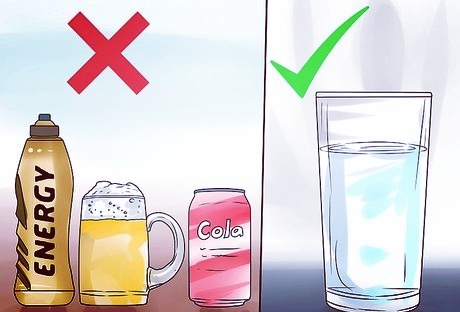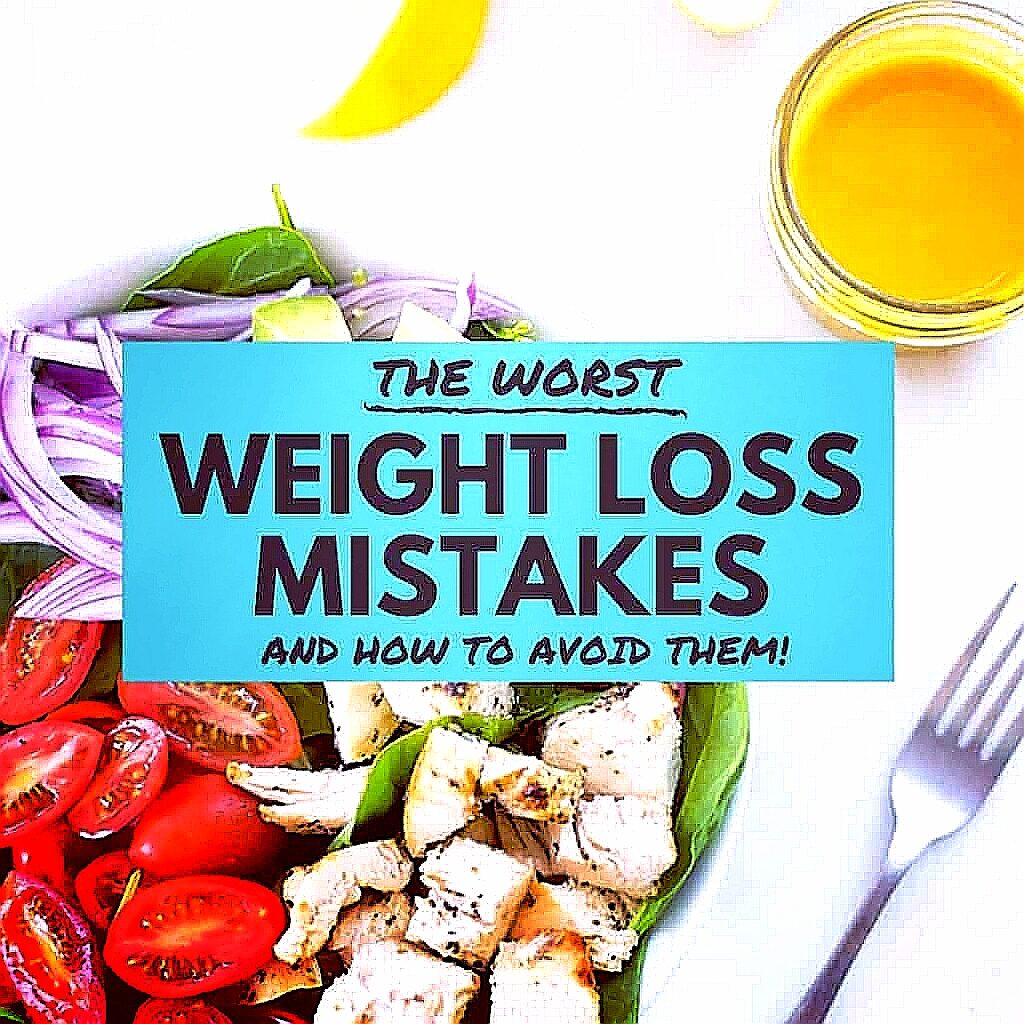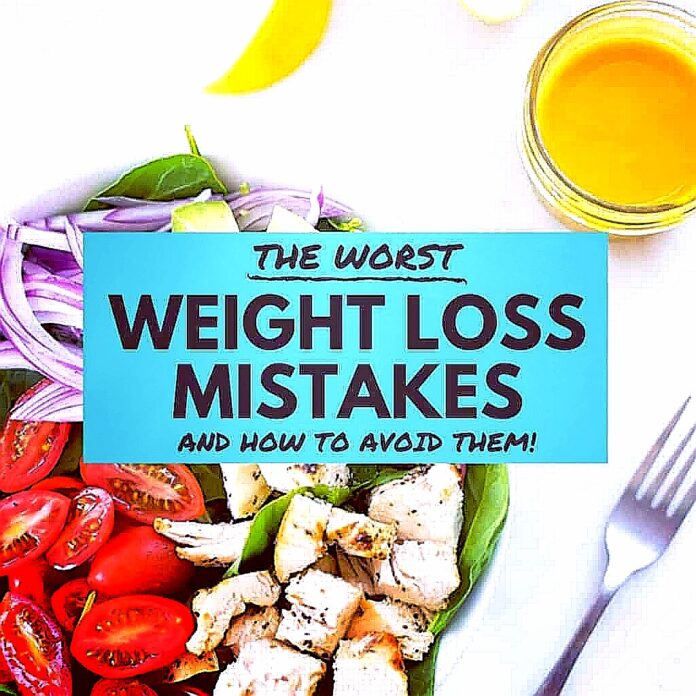14 worst fat loss diet mistakes
Fat loss is a common goal for many people looking to improve their health and appearance. However, achieving sustainable fat loss can be challenging, and many people fall prey to common diet mistakes that hinder their progress.
In this article, we’ll discuss the 10 worst fat loss diet mistakes and offer tips on how to avoid them.
Setting Unrealistic Goals

One of the biggest mistakes people make when starting a fat loss diet is setting unrealistic goals. While it’s great to have big aspirations, aiming to lose 10 pounds in a week or two is not only impractical but also unhealthy.
Losing weight too quickly can result in muscle loss, dehydration, and fatigue, and it’s not sustainable in the long run. Instead, set achievable goals, such as losing one to two pounds a week, and focus on creating healthy habits that will help you maintain your weight loss.
Cutting Too Many Calories
Another common mistake people make when trying to lose fat is cutting too many calories. While it’s true that you need to be in a calorie deficit to lose weight, cutting too many calories too quickly can cause your metabolism to slow down, making it harder to lose weight in the long run.
Additionally, severely restricting calories can lead to nutrient deficiencies, fatigue, and muscle loss. Instead, aim to create a moderate calorie deficit by reducing your calorie intake by 250-500 calories per day.
Skipping Meals
Skipping meals, especially breakfast, is a common mistake people make when trying to lose weight. While it may seem like a good idea to skip a meal to save calories, it can actually backfire and lead to overeating later in the day.
Furthermore, skipping breakfast can lead to low energy levels, decreased metabolism, and increased cravings for high-calorie foods. Instead, aim to eat three balanced meals a day and include healthy snacks if necessary.
Relying Too Much on Supplements
Supplements can be a useful addition to a fat loss diet, but they shouldn’t be relied on as a magic solution. Many supplements marketed for weight loss have little to no scientific evidence to support their effectiveness, and some can even be harmful.
Instead, focus on getting your nutrients from whole, unprocessed foods, and consider supplements as a way to fill nutrient gaps or support your overall health.
Overdoing Cardio
Cardiovascular exercise, such as running or cycling, can be an effective way to burn calories and lose fat. However, overdoing cardio and neglecting resistance training can actually hinder your progress.
Resistance training, such as weightlifting, helps to build muscle, which in turn increases your metabolism and helps you burn more calories throughout the day. Aim to incorporate both cardio and resistance training into your routine to maximize your fat loss.
Eating Too Many Processed Foods
Processed foods, such as chips, cookies, and frozen dinners, are often high in calories, sugar, and unhealthy fats. While they may be convenient, they can sabotage your fat loss efforts.
Instead, aim to eat a diet rich in whole, unprocessed foods such as fruits, vegetables, whole grains, lean protein, and healthy fats. These foods are nutrient-dense and can help you feel full and satisfied while still allowing you to lose weight.
Drinking Too Many Calories

Liquid calories, such as soda, juice, and sweetened coffee drinks, can add up quickly and hinder your fat loss efforts. These drinks are often high in sugar and calories, and they don’t provide the same satiety as solid food.
Instead, opt for calorie-free beverages such as water, unsweetened tea or coffee, or sparkling water with a splash of fruit juice.
Neglecting Sleep
Getting adequate sleep is essential for overall health, and it’s also important for fat loss. Sleep deprivation can lead to hormonal imbalances that increase cravings for unhealthy foods and make it harder to stick to a healthy eating plan.
Additionally, lack of sleep can increase stress levels, which can lead to overeating and hinder your fat loss efforts. Aim to get 7-9 hours of sleep each night to support your fat loss goals.
Not Tracking Progress
Tracking your progress is an essential part of any fat loss diet, as it allows you to see how far you’ve come and make adjustments if necessary. However, many people make the mistake of not tracking their progress or only relying on the scale to measure their success.
While the scale can be a useful tool, it doesn’t tell the whole story. Instead, track your progress using a combination of methods, such as taking measurements, progress photos, and keeping a food diary. This will give you a more comprehensive view of your progress and help you stay motivated.
Not Being Consistent
Consistency is key when it comes to fat loss, but many people make the mistake of being too strict with themselves and then falling off the wagon when they slip up. Instead, aim for consistency over perfection.
Allow yourself some flexibility in your diet and exercise routine, and focus on making sustainable lifestyle changes that you can stick to long-term. Remember that small, consistent changes over time can lead to significant results.
Focusing Too Much on the Scale
While it’s important to track your progress, focusing too much on the number on the scale can be discouraging and misleading. Weight fluctuates throughout the day, and factors such as water retention and muscle gain can affect the number on the scale.
Instead, focus on how you feel and how your clothes fit. Pay attention to changes in your body composition, such as increased muscle mass and decreased body fat percentage.
Giving Up Too Soon
Fat loss takes time, and it’s easy to get discouraged when you don’t see results right away. However, giving up too soon can prevent you from reaching your goals.
Remember that fat loss is a marathon, not a sprint. Be patient and consistent, and trust the process. Celebrate small victories along the way, such as fitting into a smaller size or completing a challenging workout.
Comparing Yourself to Others
Comparing yourself to others can be demotivating and counterproductive. Everyone’s body is unique, and fat loss progress varies from person to person.
Instead, focus on your own journey and celebrate your own progress. Remember that every small step counts, and you are making progress towards your goals.
Not Seeking Professional Help
If you’re struggling to lose weight or maintain a healthy lifestyle, it may be beneficial to seek professional help. A registered dietitian or certified personal trainer can provide personalized guidance and support to help you achieve your goals.
Additionally, if you have underlying health conditions, such as diabetes or high blood pressure, it’s important to consult with a healthcare provider before starting any fat loss diet or exercise program.
In summary, avoiding these 14 common fat loss diet mistakes can help you achieve sustainable and healthy weight loss. Remember to set realistic goals, create a moderate calorie deficit, eat whole, unprocessed foods, incorporate both cardio and resistance training, get adequate sleep, track your progress consistently, focus on how you feel and how your clothes fit, be patient and consistent, celebrate your own progress, and seek professional help if necessary.

golden rule of diet and what’s it meaning
The golden rule of dieting is “calories in, calories out,” which means that to lose weight, you need to consume fewer calories than you burn through physical activity and daily metabolic processes.
In other words, the golden rule of dieting is based on the principle of energy balance, which states that if you consume more calories than your body needs, you will gain weight, and if you consume fewer calories than your body needs, you will lose weight.
To apply the golden rule of dieting, you need to create a calorie deficit by either reducing your calorie intake, increasing your physical activity, or a combination of both. This can be achieved by tracking your calorie intake and expenditure, and adjusting your diet and exercise routine accordingly.
While the golden rule of dieting is a helpful guideline for weight loss, it’s important to remember that the quality of the calories you consume also matters. Consuming a balanced, nutrient-dense diet consisting of whole, unprocessed foods can help support overall health and weight loss efforts.
Furthermore, individual differences in metabolism, genetics, and lifestyle factors can influence how many calories you need and how your body responds to different diets and exercise programs. Therefore, it’s important to work with a healthcare provider or registered dietitian to create a personalized plan that meets your individual needs and goals.
What is the true key to weight loss?
The true key to weight loss is creating a calorie deficit, which means consuming fewer calories than you burn through physical activity and daily metabolic processes. This is the fundamental principle of weight loss, and all successful weight loss programs are based on this principle.
However, it’s important to note that weight loss is not just about reducing calories, but also about making healthy lifestyle choices. Eating a balanced, nutrient-dense diet consisting of whole, unprocessed foods can help support weight loss efforts, as can regular exercise, adequate sleep, stress management, and other healthy habits.
Additionally, weight loss is not a one-size-fits-all approach, as individual differences in metabolism, genetics, and lifestyle factors can influence how many calories you need and how your body responds to different diets and exercise programs. Therefore, it’s important to work with a healthcare provider or registered dietitian to create a personalized plan that meets your individual needs and goals.
In summary, the true key to weight loss is creating a calorie deficit through healthy lifestyle choices such as reducing calorie intake, increasing physical activity, and making other healthy choices such as getting enough sleep and managing stress.

















